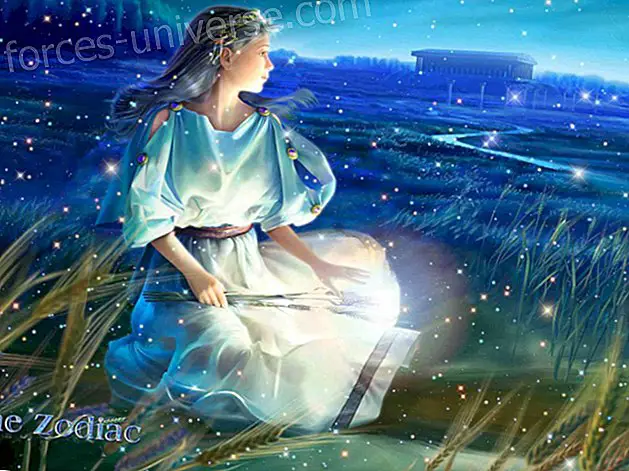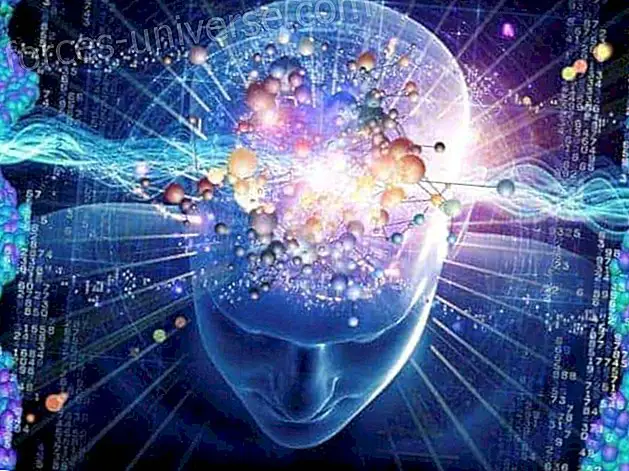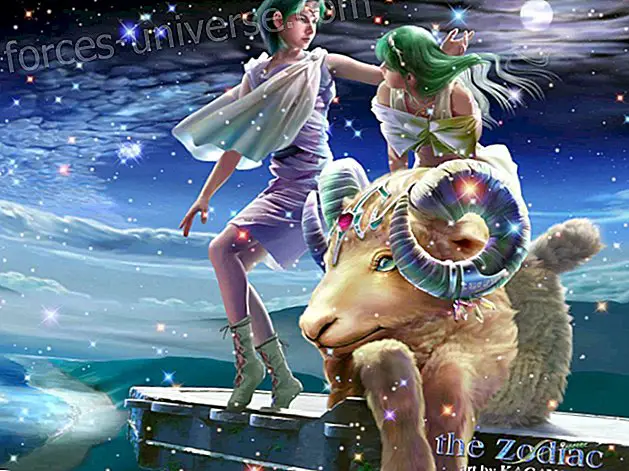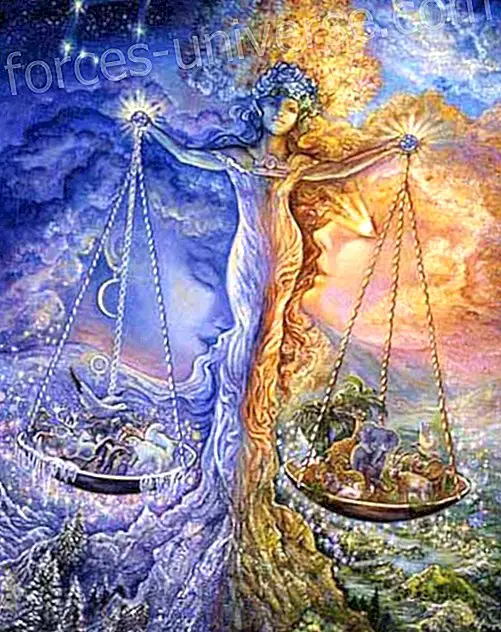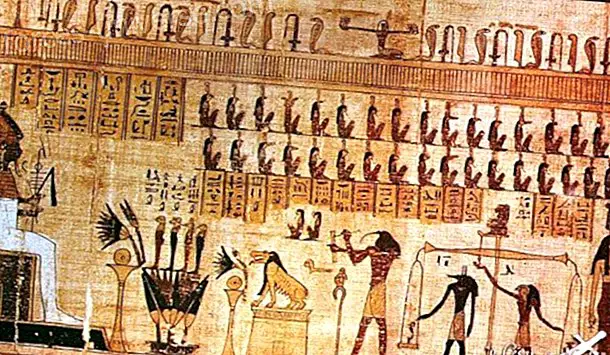The kingdom that wanted to measure happiness
Pablo Guimon
What if the economic indicators were not enough to measure the welfare of a society? 35 years ago, in an isolated Himalayan kingdom, a charismatic king decided that gross inner happiness was more important than gross domestic product. Today, Bhutan is the youngest democracy in the world and the exotic testing ground of one of the most interesting debates in global economic thinking.
Behind the great stories there are usually great characters. And no one who has visited his little Himalayan kingdom can deny that qualification to Jigme Singye Wangchuck, fourth king of Bhutan, whose mysterious and fictional aura seems to breathe in each of the homes of this country the size of Switzerland, with just 700, 000 inhabitants, which the fourth king made last year the youngest democracy in the world.
In a week in the country it was not possible to hear a single bad word about Jigme Singye Wangchuck, educated in the United Kingdom, married with four sisters and father of 10 children, one of whom is the current king. Instead, the story of its virtues is repeated until the empalago. What if he lives alone in a modest cabin. That when people offered to build a castle he said no, that they spend money and time to build schools and hospitals. That he is compassionate, wise, that he would sacrifice everything for his people. That the first came to defend with his own hands the country when it was necessary to fight, in 2003, against the separatist rebels of Assan, who crossed the border and hid in the dense forests of Bhutan to launch attacks against India.
“To make our Constitution, we read the Spanish one over and over again. It's very good"
52% of Bhutanese said they felt "happy"; 45%, "very happy", and only 3% said it was not
“He is a king-god. the only king in history that deserves that name. it's like a Buddha, ”says a sister of the four queens
What we measure affects what we do. If the indices only measure how much is produced, we will tend only to produce more
"The question is whether GDP is a good measure of living standards, " says Stiglitz.
“We do not intend to teach anything. If the world believes there is something to learn, they are more than welcome. ”
It is a king god. The only king in the history of mankind that deserves that name. Many peoples, for many reasons, have revered their leaders. But he is special. It is an enlightened mind. It's like a buddha. ” You may not have to go as far as Ashi Sonan Choden Dorji, 41, the little sister of the four queens, who thus defines her brother-in-law, drinking tea in the elegant lounge of her house on the outskirts of the capital. But the visionary word could be accepted if one considers that the king coined, 35 years ago, a term that today, in this scenario of post-communism and wild post-capitalism, constitutes the center of one of the most interesting debates that are taking place in World economic thinking. A debate to which Nobel Prizes such as Joseph E. Stiglitz or Amartya Sen and Western leaders such as Nicolas Sarkozy or Gordon Brown have signed up.
On June 2, 1974, in his coronation speech, Jigme Singye Wangchuck said: “Gross inner happiness is much more important than gross domestic product. He was 18 years old and became, after the sudden death of his father, the youngest monarch in the world.
It was not a mere slogan. Since that day, the philosophy of gross inner happiness (IBF) has guided But Butn's policy and its development model. The idea is that the way of measuring progress should not be strictly based on the flow of money. The true development of a society, they defend, takes place when advances in material and spiritual matters complement and reinforce each other. Every step of a society must be valued based not only on its economic performance, but on whether or not it leads to happiness.
Two factors may explain that this kind of third way of development has been put into practice precisely here, in this isolated kingdom of the Himalayas. On the one hand, there is its deep roots in Buddhist philosophy. And on the other, But n's proverbial delay in his opening to the world. The reincarnated lama Mynak Trulku explains the first factor: The gross inner happiness is based on two Buddhist principles. One is that all living creatures pursue happiness. Buddhism speaks of individual happiness. On a national level, it is up to the Government to create an environment that facilitates individual citizens to find that happiness. The other is the Buddhist principle of the intermediate path. And this links with the second factor, which explains Lyonpo Thinley Gyamtso, former Minister of Interior and Education: There are modern countries, and then there is what was But n until the seventies. Medieval, without roads, without schools, with religion as the only guide. They are two extremes, and the IBF looks for the intermediate path.
The television arrived in Bhutan in 1999, at the same time as the Internet. Thimpu is today the only capital of the world without traffic lights, and the international airport has only one runway. That delay in modernization has allowed Bhutan, a small country embedded between the two most populous states on Earth, India and China, to learn from the mistakes of others. neighboring countries in development routes that have focused exclusively on economic progress.
The Bhutan concept of gross inner happiness is based on four pillars, which should inspire every government policy. The pillars are: 1. A sustainable and equitable socio-economic development. 2. The preservation and promotion of culture. 3. Conservation of the environment. 4. Good governance. To bring it into practice, the fourth king created in 2008 a new institutional structure at the service of this philosophy, with a national FIB commission and a series of local level committees.
What we measure affects what we do. If our indicators only measure how much we produce, our actions will tend to produce more. That is why the FIB of a philosophy had to be converted to a metric system. And that is what the fourth king entrusted to the Center for Bhutanese Studies, which years later has found an index to measure happiness.
The raw material is a questionnaire that Bhutanese citizens will answer every two years. The first survey was conducted between December 2007 and March 2008. A total of 950 citizens across the country answered a questionnaire with 180 questions grouped into nine dimensions:
1. Psychological well-being.
2. Use of time.
3. Vitality of the community.
4. Culture
5. Health
6. Education
7. Environmental diversity.
8. Standard of living.
9. Government.
Here are some questions from the questionnaire: "I would define your life as: a) Very stressful, b) Something stressful, c) Nothing stressful, d) I don't know." "Have you lost a lot of sleep because of your worries?" "Have you noticed changes in the last year in the architectural design of the houses of Bhutan?" "In your opinion, how independent are our courts?" "In the last month, how often did you socialize with your neighbors?" "Do you tell traditional stories to your children?"
Once the survey information is processed, it is determined to what extent each household has achieved sufficiency in each of the nine dimensions, establishing cut-off values. Each indicator in which a household has reached or exceeded the cut-off value is assigned a zero. When the respondent has not reached the cut-off value in an indicator, the result is subtracted from the cut-off value and the subtraction is divided by the cut-off value itself. For example, if the poverty limit is 8 and the respondent has reached 6, the result is (8-6) / 8 = 0.25.
So how do you determine who is happy? Happy is the person who has reached the level of sufficiency in each of the nine dimensions (0). And how is gross inner happiness determined? FIB = 1 - (the average of the square of the distances with respect to the cut-off values).
We already have the value of happiness. But it's just that, a number. The next step is to compare the FIB of the different districts. Compare it over time. Decompose the index by dimensions, by gender, by occupations, age groups, and so on. And so, the FIB can be used as an instrument to guide policies.
The determination to measure the happiness born of that coronation speech of the fourth king of Bhutan can be seen as a picturesque or deeply naive case from the powerful Western economies. But the same concern begins to occupy the agendas of influential leaders and eminences of the economy worldwide. In February 2008, French President Nicolas Sarkozy created the International Commission for the Measurement of Economic Performance and Social Progress, due, in the words of its director, the Columbia University professor and Nobel Prize in Economics Joseph E. Stiglitz, "to his dissatisfaction, and that of many others, with the current state of statistical information on the economy and society" (EL PAÍS, Negocios, September 20, 2009). "The big question, " Stiglitz continued, "implies knowing whether GDP offers a good measure of living standards." And the commission's results, presented last September, confirmed Sarkozy's suspicions: GDP is misused when it appears as a measure of well-being. But there are also those who warn of the risks of expanding the variety of economic statistics, which could allow governments to hold one or the other at will, to the detriment of objectivity.
Bhutan should not be (nor intended) an example for other States. The peculiarities of the country make your experience inexportable. Bhutan is one of the smallest economies in the world, based on agriculture (to which 80% of the population is engaged), the sale of hydraulic energy to India and tourism. And it is a country highly dependent on foreign aid. The literacy rate is 59.5%, and the life expectancy is 62.2 years. The concept of FIB probably sounds like Chinese to the remote tribes of nomadic shepherds from the east, who dress in yak skins, practice an animistic religion and offer animals sacrificed to their gods in the mountains. And even more to the 100, 000 citizens of the Nepalese ethnic minority who have lived in refugee camps in Nepal since the early 1990s, after being expelled from Bhutan by the Government.
But in 2007 Bhutan was the second fastest growing economy in the world. Education, free and in English, today reaches almost every corner of the country. In a 2005 study, 45% of Bhutanese said they felt "very happy", 52% reported feeling "happy" and only 3% said they were not happy. In the World Map of Happiness, an investigation led by Professor Adrian White at the University of Leicester (United Kingdom) in 2006, Bhutan proved to be the eighth happiest of the 178 countries studied (behind Denmark, Switzerland, Austria, Iceland, Bahamas, Finland and Sweden). And it was the only one in the top 10 with a very low GDP per capita ($ 5, 312 in 2008, six times lower than Spanish).
The sun brightens the city of Thimpu this Saturday morning. Life goes by without hurry. Vegetable market stalls offer the rich autochthonous products. There are delicious red and green chili peppers, lustrous eggplants, compact cabbage, tree tomatoes, dozens of types of apples and red Himalayan rice. There are orchids, one of whose varieties are eaten, providing a fibrous texture and a bitter taste to chili or meat stews. And there are areca nuts that, smeared with lime and wrapped in betel leaf, stain red the teeth and spit of the Bhutanese who chew it, hooked to its slight narcotic effect. A tobacco substitute, whose sale is prohibited in the country.
Young people celebrate an archery championship, national sport, and dance and sing traditional songs when their team hits the target placed 145 meters away. Others sleep after having fun until late at night in karaokes and clubs not much different from those one can find in any small western city. Thimpu has a certain urban environment, mitigated by the fact that, by law, buildings must be constructed following certain rules of traditional architecture.
Most people, even here in the city, wear traditional Bhutanese attire, which the law imposes in certain public areas, to reinforce the Bhutanese cultural identity (one of the pillars of the FIB). The men's is a one-piece dress made of fabric that reaches the knees and is tied with a belt. Women wear an ankle length dress. In official acts, men wear a large scarf, called kabney, whose color indicates the rank of the person. Yellow for the king, orange for ministers and other select authorities, blue for parliamentarians, white for the plain people.
Lyonpo Sonam Tobgye, the president of the Judiciary, is one of the few Bhutanese people who can wear orange kabney. And his particular uniform is completed with an imposing sword that is tied at the waist. “The sword is power, and kabney is honor. When I retire, the sword leaves, but the kabney stays, ”he says, and lets out a loud laugh, sitting in his office, chaired (guess what?) By a photograph of the fourth king of Bhutan. It was he who commissioned him, exactly eight years ago, to lead the commission that would be in charge of drafting a draft Constitution for Bhutan. Perhaps the first big step to turn Bhutan into a democracy.
The usual thing in history is that democracy is a conquest of the people, often the product of bloody struggles and revolutions. But in the case of Bhutan, democracy came through the efforts of the fourth king, against the will of the majority of his subjects.
In December 2005, Jigme Singye Wangchuck announced that he would abdicate in favor of his firstborn and that elections would be held. "Democracy did not enter overnight, " explains Lyonpo Sonam Tobgye, with his sword hovering beneath his orange kabney. “It was a long process. When his majesty said that a Constitution had to be made, the idea was not accepted at all by the people. We did not want a constitution. We were very comfortable with our past. We had development, security, we had progressed. Even so, his majesty insisted that it was important that we have a Constitution. And the people accepted his words, because we trust him. ”
The committee studied "about one hundred" foreign constitutions. Then they were left with a score. Among them, one inspired them especially: the Spanish. "We read it again and again, " he recalls. “It is a very good constitution. It is very progressive. And you have, like us, a constitutional monarchy. I will confess one thing: we read it a little late. If we had seen it before, perhaps we would not have studied so many others. ”
They delivered a draft after 10 months, which was posted on the Internet for citizens and the outside world to see. We received about 400 comments from around the world: intellectuals, universities, human rights organizations. We studied all of that, we made another draft and it was distributed to the people.
The kings, father and son, then traveled all over the country, to the most remote villages, and held meetings in the villages to explain and discuss the draft of the Constitution. On July 18, 2008, a magna Carta was approved without the death penalty for a country whose most common crime is the pillage of artistic heritage and whose article 9.2 establishes : The State shall endeavor to promote the conditions that allow the attainment of gross inner happiness .
On March 24, 2008, the parliamentary elections were held. There were two parties and won (45 of the 47 seats) the Peace and Prosperity Party of the current Prime Minister, Jigmi Thinley. And now a year ago, in November 2008, Jigme Khesar Namgyel Wangchuck, 28, son of Jigme Singye Wangchuck, became the fifth king of But n, the first constitutional monarch of the country.
The blood of the new king adds two legitimacies. That of his father, a dynasty that reigns But But n since 1907, and that of his mother, who descends from Ngawang Mamgyal, leader of a school of Tibetan Buddhism that in 1616 was exiled in what Today is But n, at the age of 23, and he became the first ruler of the unified But n. The territory was then called (still called so many Bhutanese today) Druk Yul, or the Land of the Thunder Dragon. And the leader was given the title of Zhabdrung, or the One Whose Feet One Submits.
Its embalmed body is kept in the central tower of the Punakha Dzong, also known as the Temple of Happiness, seat of medieval power, where the five modern kings were crowned. A jewel of Bhutanese architecture, which Zhabdrung himself had built at the intersection of two fast rivers, one male and one female (they say), on a promontory with a trunk that descends to the water . Already warned, in the eighth century BC, Guru Rinpoche, patron saint of Bhutan, who brought Tantric Buddhism to these mountains: some He said, in a place that looks like a dead elephant, someone named Ngawang will build a temple. And if it succeeds, it will unify a country.
The car moves along the winding road, and one could spend hours looking at the shapes that the cottony clouds draw against the bright blue of the sky and the blanket of intense green with which the lush forests cover the imposing mountains that surround to the valley of Punakha. There are few days left to collect the rice fields, which are sown in June, before the monsoon, and which give the valley a toasted color at this beginning of autumn.
Marijuana grows free in ditches, but only recently have they had any problems with their traffic and cultivation. Traditionally it was given more exotic uses. As an old man of the place remembers, in the internships the children smeared the ground with marijuana so that the bedbugs would eat it, they would be slower and more confused, and thus it would be easier to hunt them down.
But n is a potency in medicinal plants. The coming foreign botenicians do not give credit, Kar Karma Phuntsho, of the Office for Research on Medicinal and Aromatic Plants, explains. Among the strangest species is the yagtsa guen bub, or summer grass and winter worm . It is given from 4, 000 meters of altitude and is, at the same time, animal and vegetable. A worm that sinks beneath the earth and sprouts from its head a kind of plant or fungus, whose body becomes a root. It has rejuvenating and aphrodisiac properties, and in Bangkok you pay 10, 000 dollars a kilo. In the Bhutan health system, for mild ailments, citizens can choose between traditional and western medicine. And the export of medicinal plants, explains Phuntsho, "has great potential for the country." "Of course, " he warns, "provided it is done in a sustainable way."
At the moment, the economy of Bhutan relies on the bravery of its rivers to generate hydraulic energy (they expect to multiply their production by five in the coming years) and tourism, an industry that was born in the seventies. In this field, a policy, linked to the philosophy of the FIB, of "few visitors, but much value" is followed. The tourist must pay a fee of $ 220 per day, which includes accommodation, meals, museum tickets, interior trips and guide. It is about maintaining a profitable but moderate volume, and avoiding ecological, aesthetic and social catastrophes such as the one that mass tourism has caused in neighboring Nepal.
And so on until the country is self-sufficient and stops relying on foreign aid. “We make good use of the aid. There is hardly any corruption, and donors like to associate with the idea of the FIB. But there will be a time when the UN considers that we can fend for ourselves, ”explains former Minister Lyonpo Thinley Gyamtso. “We are a small country and we want to do things like that. We don't want to teach the world anything. We do what we believe is best for us. And if the world believes there is something to learn, they are more than welcome. ”
SOURCE: http://elpais.com/diario/2009/11/29/eps/1259479614_850215.html
Visit "The Kryon Teachings" by Mario Liani: http://38uh.com -
You Tube: https://www.youtube.com/user/coilort -
Facebook (old group): http://www.new.facebook.com/group.php?gid=32488009121&ref=mf
Facebook NEW GROUP): https://www.facebook.com/groups/Mario.Liani.Kryon.Numerologia.Transpersonal
BUTAN: The Kingdom of Happiness


